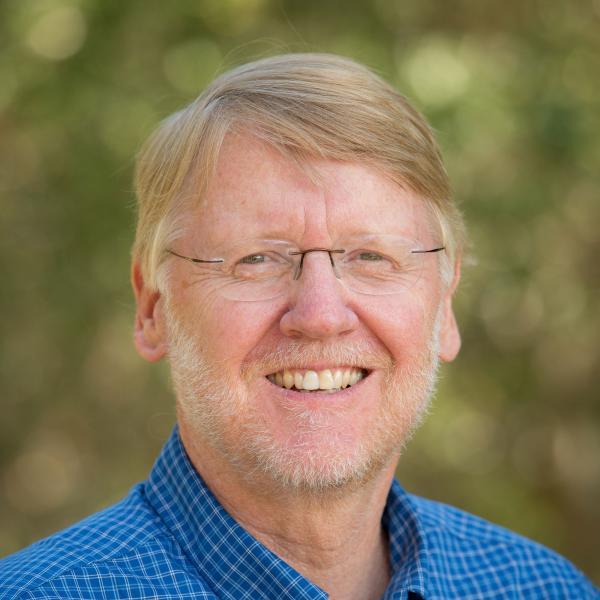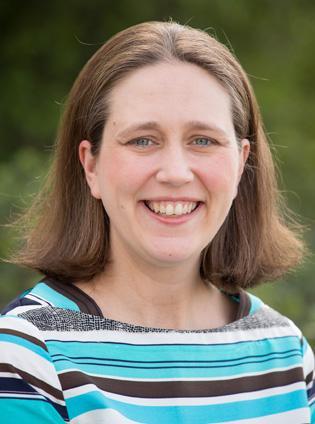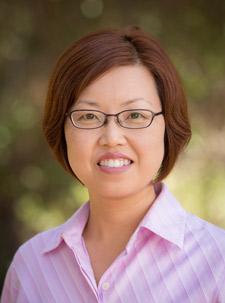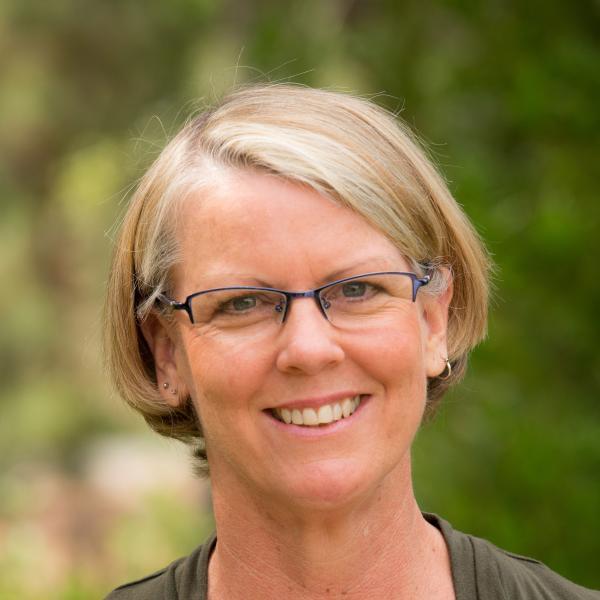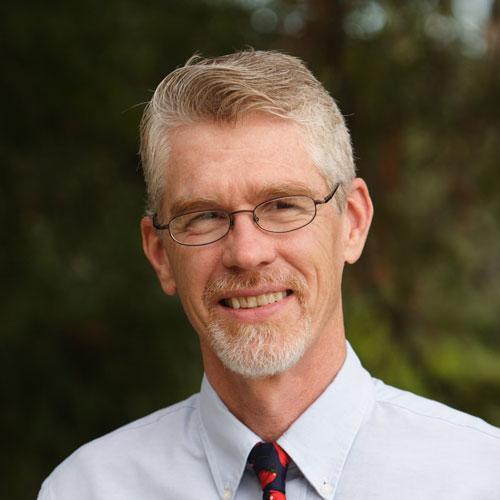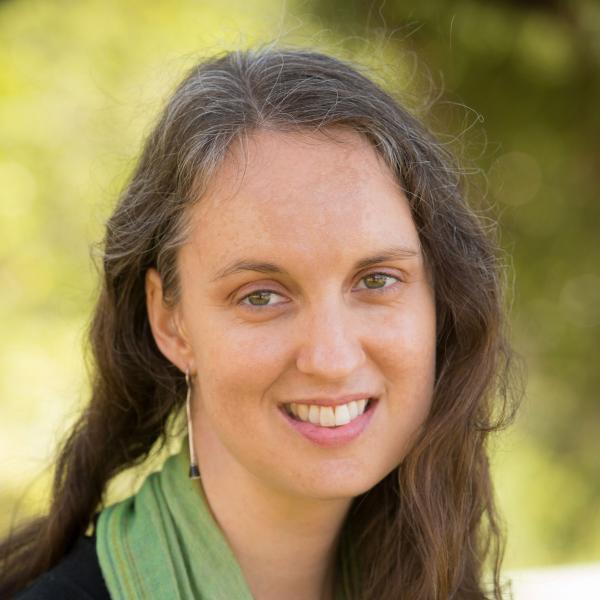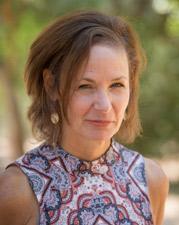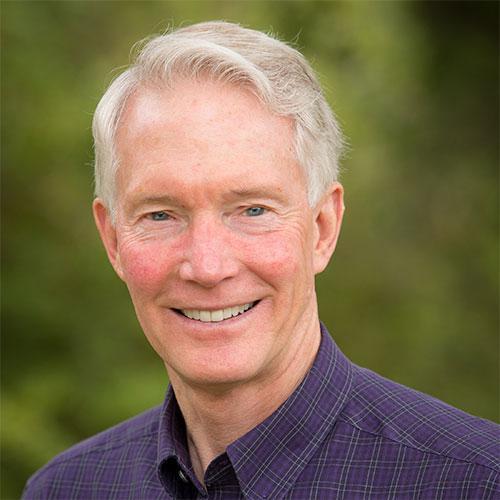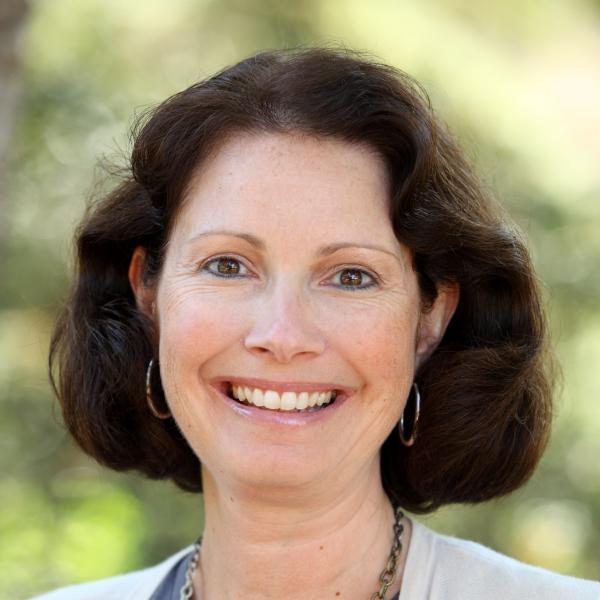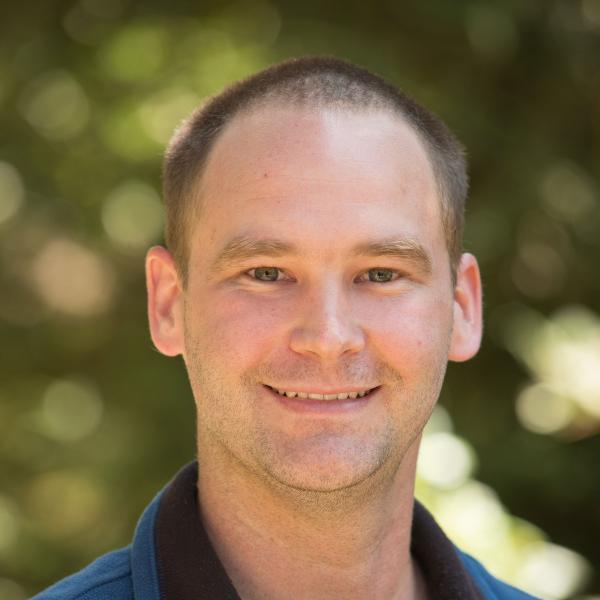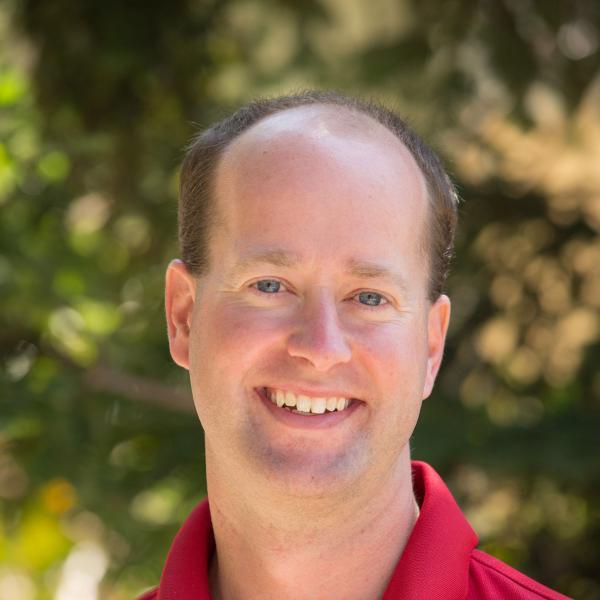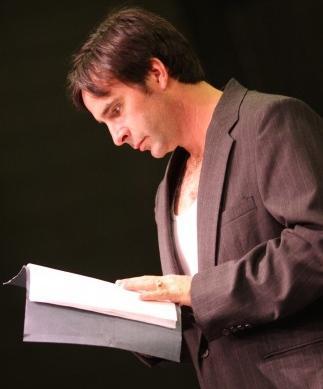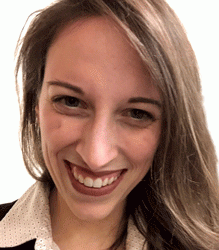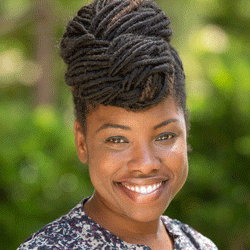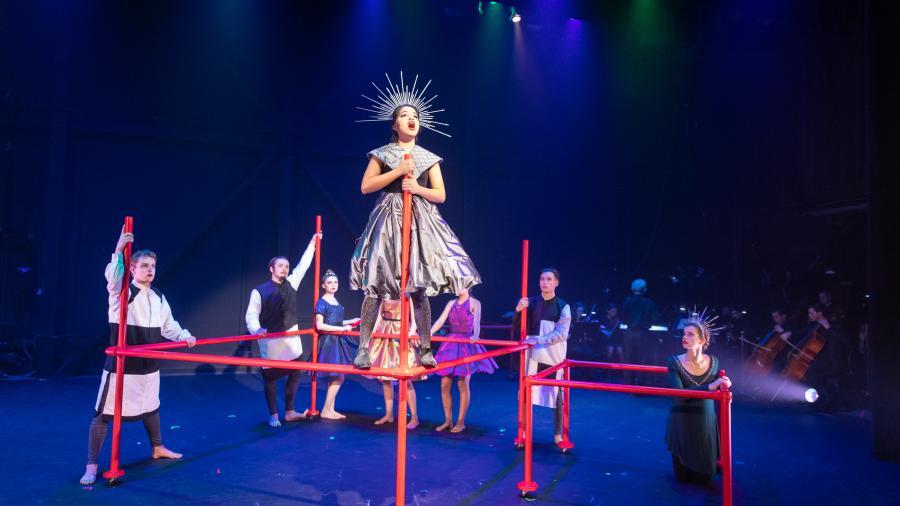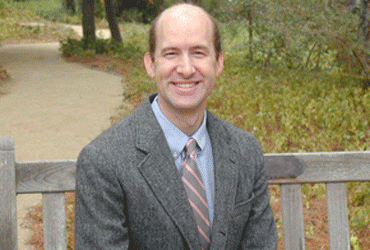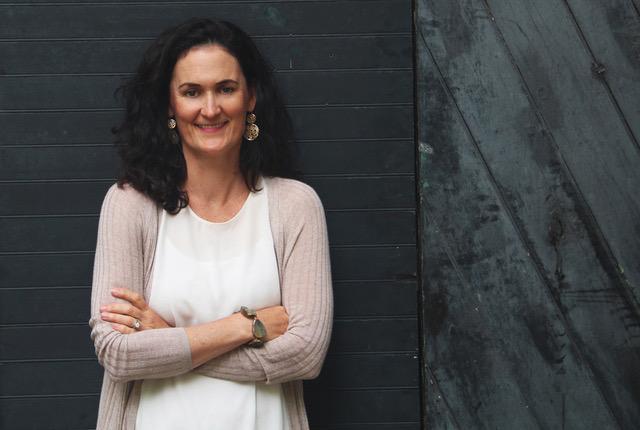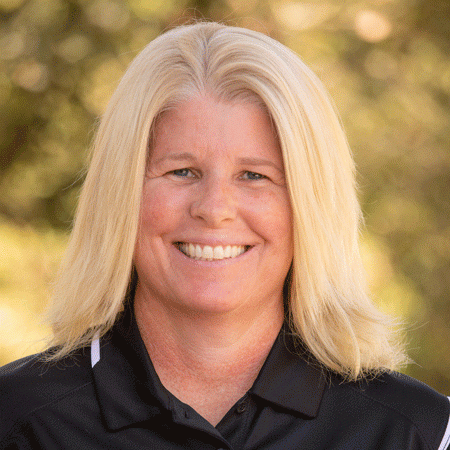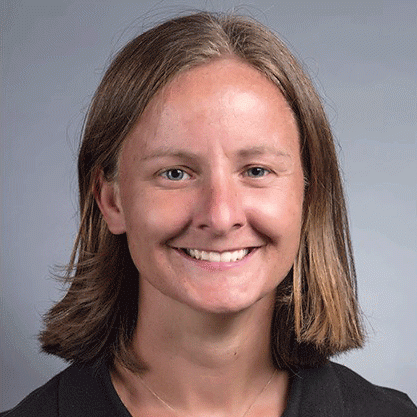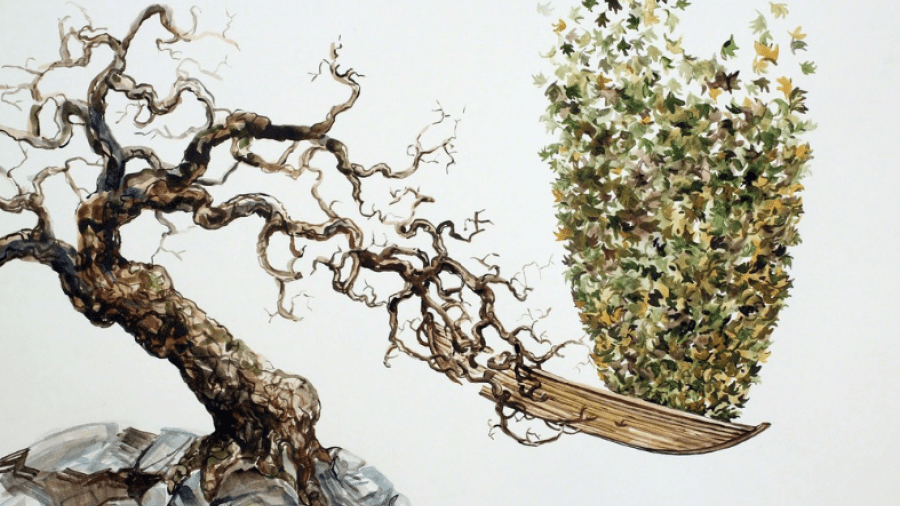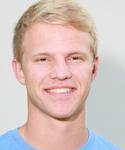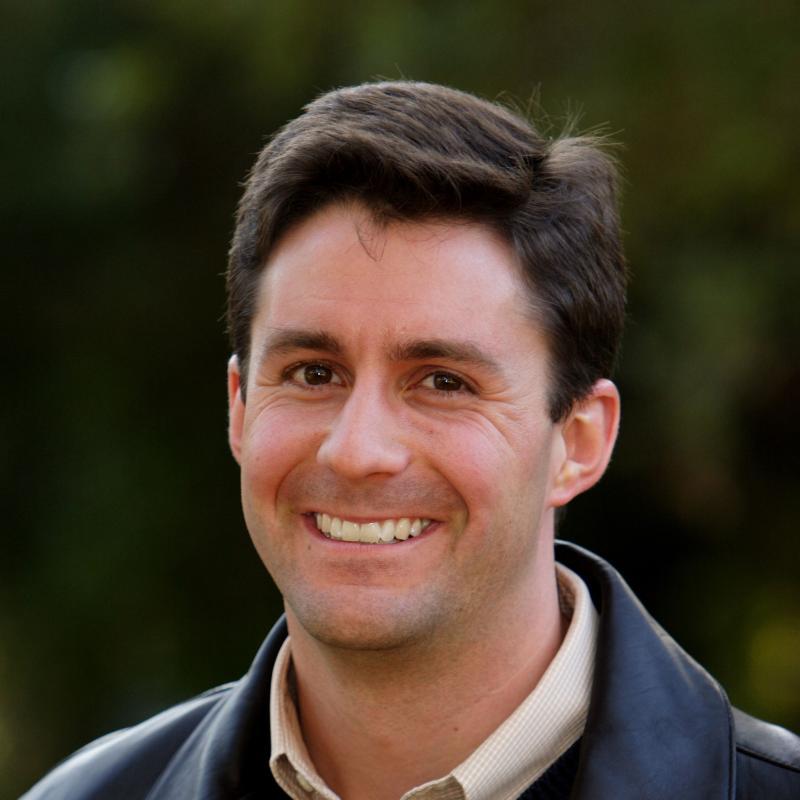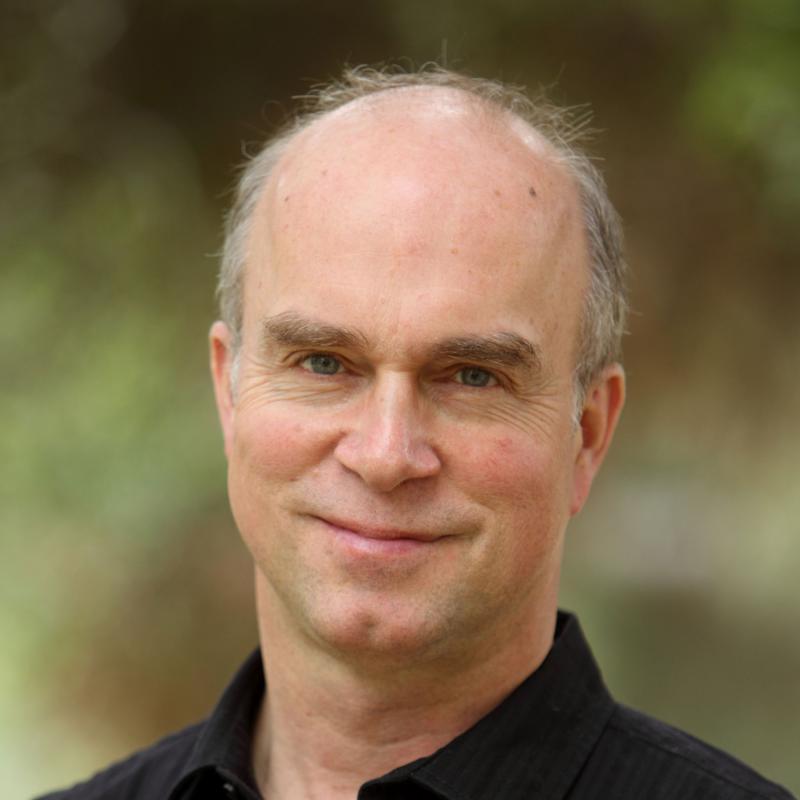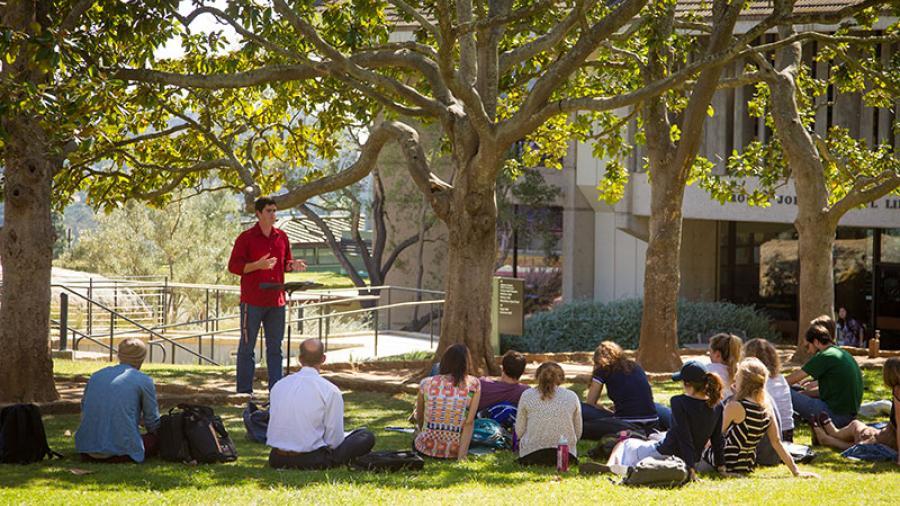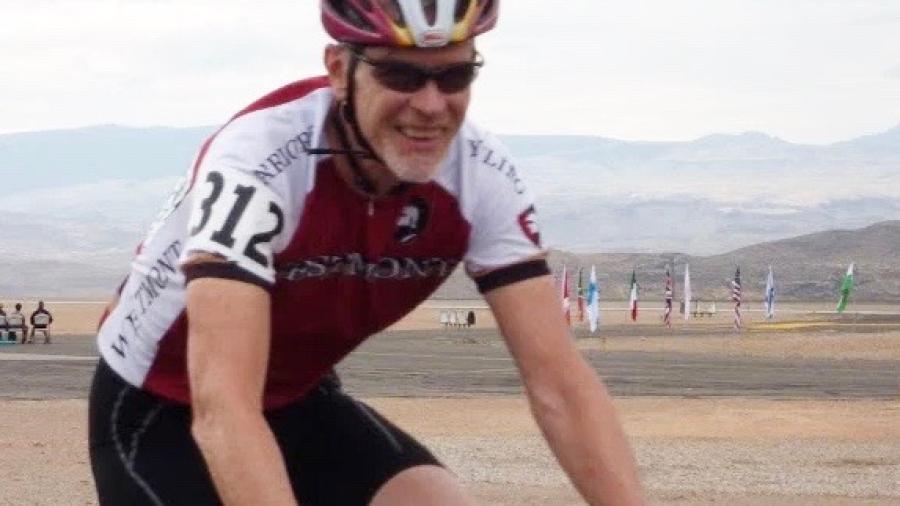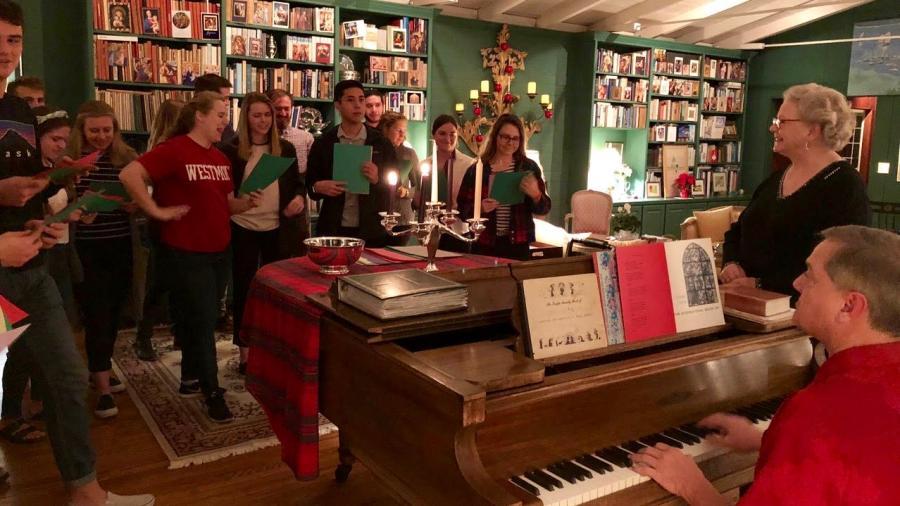Springtime is usually when we get to celebrate the appointment of several new colleagues. You will meet a few of them below—as well as discover some familiar friends in new roles. This is also the season to honor those faculty who are retiring after long and distinguished service. The tributes this month salute Mary Collier and Ray Rosentrater. The Wilsons are on deck for May.
Carrie Stein Hill is a long way from retiring, but I did want to thank her as she departs Westmont after serving as an instructor in the Chemistry Department since 2008. “Carrie has been an incredible friend and colleague," Kristi Lazar Cantrell remarks, "and it has been a joy to work with her on pre-health advising." Michael Everest refers to Carrie as "a dynamo of enthusiasm" who "develops an immediate rapport that draws students in . . . Most afternoons she can be found in her office chatting with students about the Law of Multiple Proportions or about their aspirations for the future.” Stephen Contakes adds: “Carrie has been a fire to warm and empower new students' love of science, and a listening ear as they navigate the challenges of pursuing God's call for their lives.” Carrie, we know you will always be dancing. God be with you.
For the fourth straight year it is time to congratulate Kirsten Moore and the women’s basketball team on winning the Golden State Athletic Conference tournament. Although their run in the national tournament was shorter this time around, they return virtually all of their players next year and should have a bright road ahead. John Moore and the men’s team also secured a spot in the nationals for the fifth straight year—the longest streak in the program’s history.
While we are on the subject of sports, how about Rob Ruiz and the baseball club? They have soared to a record of 22-3. (That's nearly identical to the best season-opening record in MLB history, which belonged to the '55 Dodgers.) As the team entered last weekend's series with Menlo, it had the third-lowest ERA in the nation and led the country in fielding. At present, Rob's club is ranked third in the nation (our highest ranking ever) and may not lose many more unless he asks the Provost's Office to serve as his bullpen.
UPDATES
NEW COLLEAGUE IN MATHEMATICS: ANNA ABOUD
Next fall we will be delighted to welcome Anna Aboud to the Westmont faculty as an assistant professor of Mathematics. Now finishing her doctorate at Iowa State University, Anna holds an M.A. in Teaching from the University of Alaska at Anchorage and a B.S. from Wheaton College.
At Wheaton, Anna double-majored in Mathematics and German. She has taught secondary school in Alaska and has been an instructor at three different universities. Currently, she is involved with a National Science Foundation project that is considering “algorithms for threat detection,” which includes work on algorithms involved with detecting anomalies. With funding from the Howard Hughes Medical Institute, Anna is also developing active-learning tasks for the Iowa state curriculum.
OGECHI NWAOKELEMEH ASSUMES POST IN KINESIOLOGY
I am very pleased that Ogechi Nwaokelemeh will be stepping into a full-time, tenure-track role at Westmont. For the past few years she has served in short-term appointments, and has made multiple contributions over this time. Among them has been the two years when she taught an August course in the Global Health semester in Uganda. At Westmont, she has taught classes in nutrition, fitness, public health, dance, and community-based research.
Ogechi has special interests in exercise and nutrition among youth. She has just contributed a chapter on exercise among African Americans to a new book on Physical Activity and Diverse Populations: Evidence and Practice. Ogechi completed her undergraduate degree from the University of Texas, her M.S. degree in Exercise Physiology from Howard University, and her doctorate in Kinesiology from the University of Massachusetts, Amherst.
MAGIC, MUSIC, AND MYSTERY AT THE NEW VIC
The Magic Flute is the most famous of all Singspiele—German operas, usually humorous, that blend ensembles, ballads, folklore, and spoken dialogue. Mozart loved them. This one—his most acclaimed—premiered in Vienna in 1791, less than three months before his death. The sportive mix of styles was in part a reaction against the more formalized conventions of traditional Italian opera. There’s a good dose of allegory in The Magic Flute, much of it musing on Enlightenment ideas of power and wisdom, as well as enough fable and foolishness to keep it fun. Along with the folk melodies, The Magic Flute has one of opera’s most demanding arias, requiring a singer to leap large intervals between pitches.
So you can imagine it was just the kind of challenge made for Michael Shasberger and John Blondell —a chance to push our students musically and to reinterpret a classic in freshly comedic ways. Their collaboration led to three nights with full houses at the New Vic Theatre in downtown Santa Barbara, and did the college proud. The Santa Barbara Independent praised the musicianship, the “nonstop inventiveness,” and “edge of darkly speculative wonder” of the show. The reviewer saluted John and Michael, praised several student singers—John Butler, Michelle Vera, Fitz Mora, and Jessica Lingua—and commended Jonathan Hicks (lighting), Yuri Okahana (sets), and Victoria Finlayson (choreography).
John Blondell adds his applause for other “performers”: the audience. “The mystery elixir,” he said, “is always the audience. They arrived, responded to our students in Mozart, and the show grew a 5th dimension, a 6th sense. I always think that we can rehearse a show and then an audience comes to watch something that is complete unto itself. But that is fundamentally wrong. The audience makes it complete. Ingmar Bergman calls it the Golden Triangle—text (and, in this case music), performer, and audience. The deep and loving participation of the audience brought the show into a dimension of completeness that felt magical.” Here’s hoping that there is more Westmont magic in the coming years at the New Vic.
OMEGA AND ALPHA: NEW BOOK FROM TELFORD WORK |
Telford Work has just published a new book with Baker Academic. In Jesus—the End and the Beginning, Telford reverses the usual order of “alpha and omega”: in Advent, Jesus "brings about the end of the old world's evil and suffering and is the beginning of eternity's new creation." As Telford notes, the book is pitched to readers who have “some familiarity with the big topics of Christian theology—salvation, incarnation, Trinity, church, and our hope for the future (theologians call this “eschatology”)—but are struggling with them.” “Christians claim all the time that Jesus is the center of everything,” Telford writes. “And we genuinely mean it. Still, we need to improve at understanding and explaining how.” His book aims to help pastors, new Christians, and those still exploring the claims of Christ understand that “how.” |
REIMAGINING YOUR LOVE STORY: NEW BOOK FROM ANDREA GURNEY
|
This month Andrea Gurney will see the release of her new book, Reimagining Your Love Story: Biblical and Psychological Practices for Healthy Relationships (Kregel). Her study aims to help “readers discover more authentic connections that aren’t made of wishes.” The analysis is based on “practices from psychology, biblical truth, and relationship science.” "At the end of the day," Andrea writes, "none of us have a fairy godmother or pixie dust at our disposal. And so we must do the work ourselves." There will be a book launch event on April 11 at 3:30 in Hieronymous Lounge for Andrea in celebration of the publication.
|
OUR NEW VOLLEYBALL COACH: RUTH McGOLPIN |
OUR NEW WOMEN'S SOCCER COACH: JENNY JAGGERT |
|
Since 2015, Ruth McGolpin has been the assistant coach for Westmont's volleyball team, and now she is stepping into the lead role. She has ample experience as an assistant, serving at UCSB, Colorado Mesa, the University of Northern Arizona, and the University of South Carolina prior to becoming a Warrior. "I love all sports," Ruth claims. "My dad used to make me sleep with my volleyball, basketball, and softball glove when I was in season so I could become 'one with the sport.'" Recalling her upbringing in Santa Barbara, she notes that she was "the baby of five. I first touched a volleyball when I was three. My closest brother used to hit volleyballs at me off the back porch so I could work on my defense." Her stellar defensive skills were on display at the University of Northern Arizona, where she was named to the All-Decade Team for the Big Sky Conference. Among her hopes for her players, she wants them to mature in their faith, maintain a "positive outlook on life," and be "gutsy in their execution and aggression on the court"; "I want them to forgive themselves for their mistakes and spend 90 percent of their time on solutions." As the twelfth coach in the school's history, Ruth takes over a program that has been to the national tournament three straight years. "Volleyball oozes out of my pores," she states. "I live it, I love it, and I have a passion for teaching and coaching it." |
Jenny Jaggert assumes the post as head women’s soccer coach on the first of April; she comes to Westmont from Chico State University, where she has been an assistant for the last five years. She was an outside back on the soccer team at Southwest Baptist University, and finished her M.S. in sports and recreation science at Ohio University. In addition to her love for soccer, Jenny is a “bird lover,” and enjoys teaching parrots to talk. She recalls how, as a young girl, she begged her parents for a bird, and after mowing many yards earned enough money to “put a down payment on an egg.” The egg was that of a Quaker parrot (a green-and-yellow parakeet that flourishes in South America) and the bird lived for more than eighteen years. A devotee of the outdoors, Jenny enjoys fly-fishing and backpacking, and has traversed much of the Pacific Crest Trail in the Sierras. She has a special affection for the Ruby Mountains—known as the "Alps of Nevada"—and fondly remembers hiking there with her younger brother while they read C.S. Lewis's The Great Divorce together. To honor the memory, they still read C.S. Lewis at the same time each year. In addition to being a self-proclaimed “C.S. Lewis nerd,” Jenny has taught Latin, Mathematics, and PE at a K-8 school. Jenny becomes the twelfth coach in a program that has won five national titles and nine Golden State Athletic Conference championships.
|
SANTA BARBARA MUSEUM OF ART ACQUIRES HUFF PAINTING
Nathan Huff's painting "Skies and Schisms 9" was acquired by the Santa Barbara Museum of Art for its permanent collection. The work was purchased from the recent faculty exhibition at Sullivan Goss Gallery entitled “Mentors and Makers, The Artists of Westmont College.” Scott Anderson, James Daley, Chris Rupp, Sommer Roman, and Meagan Stirling also had works at the exhibit.
CLS HONOR FOR WILL WALKER
Will Walker, a junior History major, has been given a Critical Language Scholarship to study Arabic. He is still awaiting his specific placement (Morocco, Oman, or Jordan). The CLS program is an enterprise of the U.S. Department of State that seeks to expand the number of Americans studying and mastering foreign languages, preparing them for the “21st century's globalized workforce.” The prestigious national scholarship award sends American college students to language institutes around the world for intensive cultural immersion and language study. Thanks to Ed Song for his work promoting these scholarships and fellowships with students.
LOGIC, GOOD AND BAD
Quiz: Is this syllogism valid or not?
If David VanderLaan and Mark Nelson were very good at logical argumentation, they would be invited to contribute essays to a book about bad logical argumentation.
David and Mark have indeed been invited to contribute essays to a book about bad logical argumentation (Bad Arguments: 100 of the Most Important Fallacies in Western Philosophy, published by Wiley).
Therefore, David and Mark must be very good at logical argumentation.
David's essay is about the fallacy of "Adverse Consequences," while Mark writes about the Is/Ought fallacy (which is not, in fact, a fallacy).
AMERICAN SCIENTIFIC AFFILIATION AT WESTMONT
At the end of January, Stephen Contakes and Michael Everest hosted the annual day conference for Southern California Christians in Science—a local chapter of the American Scientific Affiliation. Roughly 70 individuals attended the conference at Westmont from as far away as San Diego. Many of our own students were able to participate. Several faculty presented at the conference. Yi-Fan Lu and Telford Work gave an interdisciplinary perspective on gene editing in a joint session on CRISPR/Cas-9. Ron See discussed some historical and recent experiments that some claim provide evidence that our actions are entirely predetermined. Stephen Contakes provided a historical perspective on medieval theories of matter, drawing parallels to some contemporary science-faith conversations.
SOME CURRICULAR UPDATES
The Theatre Department has now created two tracks. "Theatre in the Liberal Arts" has been designed for those who wish to double major with another field, and it may appeal to the large number of students who have multiple interests but a keen desire to participate in and study theatre during college. "Theatre Studies" is for those who have more inclination to pursue graduate study or professional work in the theatre industry, so the track includes a few more applied courses and electives.
Given the large number of candidates interested in the Augustinian Scholarship, we have decided to expand some honors opportunities for the top students. Some 60 of the candidates will receive the highest scholarship, while many of the others will have the option of being Presidential Fellows or Augustinian Fellows. The Presidential Fellows will receive some additional funding, have opportunities to take some special first-year seminars, and meet and converse with many of the leading lecturers invited to campus. The Augustinian Fellows will be able to take the current Augustinian seminars offered in the first year. Jesse Covington, Ed and Felicia Song, and Jim Taylor are set to teach the seminars in the fall, though a third section may be needed if there is a high rate of matriculation by the Fellows.
TOUR DE ROSENTRATER
Perhaps the best way of saluting Ray Rosentrater on his retirement would be to hold a bike ride in his honor. That tour might begin in Carpinteria (from which he bikes to work almost every day), head over San Marcos Pass and then around Lake Cachuma and back (a routine day of cycling for him), or, perhaps better yet, traverse some of the roads in Italy (where he has competed in races).
I like the Italy option, since it could emphasize that Ray has been, in the words of Don Patterson, "the quintessential Renaissance person," not to mention "an amazing colleague." "He has a deep appreciation for math done well," Don observes, "and tirelessly advocates for students to see the discipline as a creative rather than mechanical endeavor. But he is also a great role model for being human: he publishes thoughtful writing about math, he is an avid bicycle rider, he protests the lack of a Labor Day holiday with an annual picnic in Winter Hall, he leads singing in class and at church, and has a knack for managing his feral colleagues."
A graduate of Messiah College, Ray earned an M.S. in Computer Science from the University of Toronto and completed his doctorate in Mathematics from the University of Indiana. He began his career at Westmont in 1980. He's received teaching and research awards, and won a Fulbright scholarship to Honduras in 1995. His 2015 book, The Varieties of Integration, explores how different definitions of the integral can influence proof techniques and computational strategies.
"Ray is the biggest gentleman I know," Maryke van der Walt observes. "He's been a role model to me in how he strives to teach his students to be independent thinkers and problem-solvers." One of Ray's students—Patti Hunter —recalls her early encounters with Ray: "From my first semester as a student in Ray's calculus class to the present day, I have benefited from Ray's support. He encourages all his students to persevere through the challenges of mathematics, and he has especially been a champion of women in mathematics."
"Ray is one of the first people I turn to when I have a question about mathematics or statistics," David Hunter observes. "His knowledge is broad and deep, and he is quick to grasp the details of a problem. He also thinks carefully about pedagogical issues, and has been a leader in implementing active and inquiry-based learning. He is able to challenge and engage students, but at the same time he is gentle and encouraging."
No doubt, retirement for Ray will see him on several more long rides over challenging roads, but I know he will be finding many other opportunities to help others on their own journeys. Someone who has shared many years of Ray's academic journey with him—his longtime colleague Russ Howell—writes, "The Wizard of Oz was in reality rather ordinary, but he projected a phony grandiose image. In many ways Ray is the opposite: he is in reality every way extraordinary, yet he projects a genuinely humble image. Never one to boast of his own accomplishments, his contributions to Westmont and our department have been immense. He is a terrific teacher, first-class researcher, and well-organized administrator; his position may be replaced, but he will not be."
MERCI MILLE FOIS
“We did a lot of singing in French,” Michelle Hardley recalls, “and I can still recite the French national anthem to this day. Not bad since I haven't been in a class taught by Mary Collier in 20 years!”
Anyone who has studied with Mary Blackwood Collier knows that she loves music nearly as much as she loves French culture and the French language. She sings beautifully, delights in opera, and has written a book on Bizet’s Carmen. For many years, she has served as a French diction coach at the Music Academy of the West. During the Christmas season, she invites her classes over to her home to enjoy her special crepes and sing carols—in French, of course.
"Mary Collier is one of the most hospitable and generous people I have ever met," Mary Docter comments. "She routinely opens her home—and her heart—to those of us who are new and finding our way. I remember with great fondness having dinner at her beautiful home (literally built by her parents, brick by brick) during my initial interview at Westmont, and how she has continued to do so to mentor me during my years at Westmont. She has truly been an inspiration and a gift."
Along with her affection for French language and culture, Mary Collier loves art, gardens, sports cars, and hot air balloons—and hopes, someday, to soar over Paris.
Perhaps there will be an occasion for that flight in the future, as Mary is concluding her full-time teaching at Westmont this year. After completing a doctorate at the Université de Paris, Sorbonne, Mary began teaching at Westmont in 1981. One of my first memories of Mary was attending the ceremony when the French government knighted her as a Chevalier dans l’Order des Palmes Académiques in gratitude for the many ways she has promoted the French language and culture. At the ceremony David Martinon, consul general of France, Los Angeles, cited French novelist Marcel Pagnol when he referred to the honor as "the highest distinction the French Republic can give because it celebrates not only knowledge but the art of spreading it amongst students."
“I admire Mary because she is a beacon of hope and cheerfulness,” Dinora Cardoso observes. “It doesn’t matter if she is ailing, Mary always puts on a smile and has a kind word for everyone. She is unreservedly humble and a dedicated peacemaker.”
Along with the singing, Mary is known for helping students memorize scripture in French. Michelle Hardley recalls how Mary’s tutelage prepared her to recite the twenty-third Psalm in front of her church on an international Sunday. She also acknowledged that one of her favorite memories was when Mary “taught us all how to say ‘um’ in the French fashion. That way, if we ever needed to pause for a moment in conversation, we could at least sound more sophisticated than the hard American manner.”
Michelle is not alone: spend some time with Mary and you will come away with greater sophistication than when you began.
Merci mille fois.
Provost's Report Archives
2019
|
2018 |
2017 |
2016 |
2015 |
2014 |
